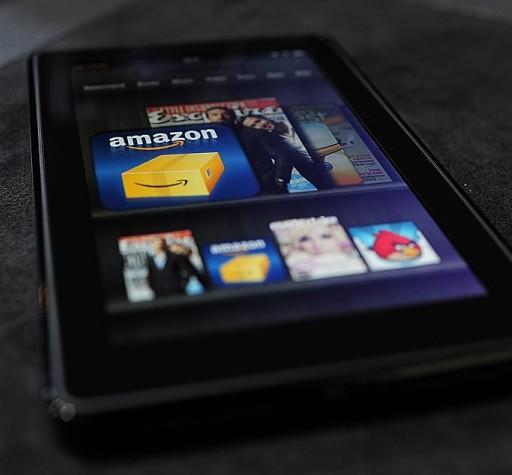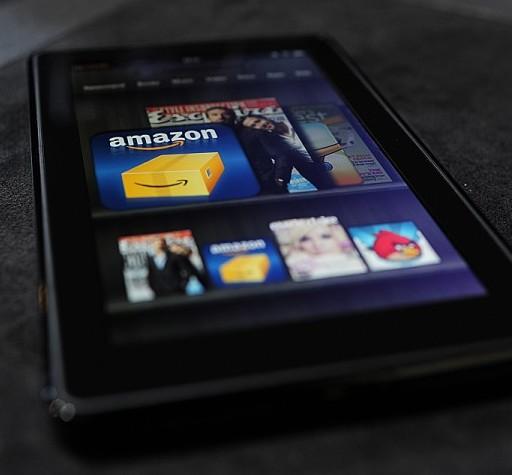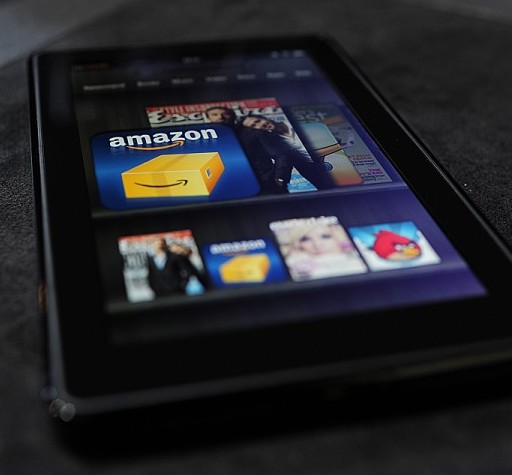The rise in popularity of e-books and their portable readers is unmistakable. Amazon’s Kindle has become the de facto platform for distribution, but challenging it are Barnes and Noble’s Nook, Acer’s Iconia Tab, and Lenovo’s Ideapad, among others.
Amazon’s full color Kindle Fire media tablet has even infringed on the dominance of Apple’s iPad and iPad2.
And sales of e-Books are on the rise. On Feb. 27, publishing company Penguin released its year 2011 numbers, which showed “e-book revenues up 106 percent; now 12% of total Penguin revenues,” according to the announcement.
“Our e-book sales doubled, we expanded our digital publishing programs, and we won a Pulitzer Prize for the second year in a row. We had more bestsellers than we’ve ever had in a single year,” said Penguin Group (USA) CEO David Shanks.
The shift from traditional hard copy to e-book reading is not without challenges for traditional publishers, while also providing opportunities and leverage for Internet giants, like Amazon.
Last week Amazon used this leverage in sales negotiations with Independent Publishers Group (IPG), one of the largest independent book distributors. When Amazon did not receive the terms it asked for in renewing its e-book agreement with IPG, it yanked over 5,000 Kindle titles from the distributor off of its retail website.
“I am disappointed to report that Amazon.com has failed to renew its agreement with IPG to sell Kindle titles,” said IPG President Mark Suchomel, who said the terms of the agreement were the same as negotiated previously.
Based out of Chicago, IPG represents more than 400 publishers, including titles that have gone on to become bestsellers.
The battle between Amazon and its client publishers is one over whom defines the terms of sale: publishers using the e-book agency model, or the retailer purchasing wholesale, such as used for hard copy books.
Amazon removed “Buy” buttons from all Macmillan Publishers titles in 2010, “after the publisher said it would sell its e-books to the retailer on agency terms, as opposed to wholesale terms,” according to a report by Publishers Weekly.
A press release or statement from Amazon on these matters was not available.
Although not a retailer, Internet e-commerce giant PayPal made its presence felt in the distribution of digital publications. On Feb. 18, PayPal gave notice to independent e-book publishers using its services that they risked a shutdown to their business accounts if they did not remove books that contained certain inappropriate sexual or erotic themes, such as rape and incest.
E-book Lending
As publishers of digital books have had to deal the changing landscape, so, too, have traditional institutions, such as the public library system.
Recently Penguin Group announced it will not sell new e-books and audiobooks through a distribution system used by public libraries—the latest of the “Big Six” publishing companies to make such a move.
“With this move, Random House becomes the only big-six publisher to allow unrestricted access to its e-books in libraries—though it will raise prices beginning in March,” stated paidcontent.org, which states it covers “The Economics of Digital Content.”
The move prompted one Maryland library official, Harford County Public Library Director Mary Hastler, to e-mail a letter to the library’s 160,000 registered borrowers, calling on them to contact publishers over the move.
“Harford County Public Library customers are savvy readers and demand for books in e-book format has increased dramatically over the past year,” Hastler stated in her letter, according to the Baltimore Sun. “It is discouraging that publishers are refusing to sell e-books to public libraries, but we remain hopeful that they are committed to finding a workable solution so that e-books are available to our customers.”
The other Big Six publishers not participating with digital library distributor Overdrive are Macmillan Publishing, Simon and Schuster, Hatchette Book Group, and Brilliance Audio, according to Director Hastler’s letter.
Traditional Books
While some publishing companies may have to rearrange their approach to selling books in today’s market, Associate Publisher Gary Pulliam, of Rose Digital Publishing in Florida, writes in an e-mail: “They (electronic reading devices) are NOT Bad News ... anything that gets people ”reading“ is ”Good News” ... There are still (and will be for a very long time) thousands of people who want nothing to do with electronic reading devices, they take comfort with having books on their book shelves and in their libraries.
“There are also those, who can’t afford the electronic devices maybe they are on a fixed income, or have limited resources,” Pulliam concludes.
A peer related blog on Quora.com posts the question “Why do some people prefer physical books over digital alternatives?” Joshua Levy may provide a clue, when he writes “This may be a bit like asking why paintings on the walls of art museums should not be replaced with flat-screen displays. The idea makes technical sense on some level, but overlooks a lot of details.”






